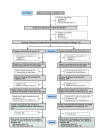Community Partners in Care: 6-Month Outcomes of Two Quality Improvement Depression Care Interventions in Male Participants
- PMID: 28811733
- PMCID: PMC5517140
- DOI: 10.18865/ed.27.3.223
Community Partners in Care: 6-Month Outcomes of Two Quality Improvement Depression Care Interventions in Male Participants
Abstract
Objective: Limited data exist on approaches to improve depression services for men in under-resourced communities. This article explores this issue using a sub-analysis of male participants in Community Partners in Care (CPIC).
Design: Community partnered, cluster, randomized trial.
Setting: Hollywood-Metropolitan and South Los Angeles, California.
Participants: 423 adult male clients with modified depression (PHQ-8 score≥10).
Interventions: Depression collaborative care implementation using community engagement and planning (CEP) across programs compared with the more-traditional individual program, technical assistance (Resources for Services, RS).
Main outcome measures: Depressive symptoms (PHQ-8 score), mental health-related quality of life (MHRQL), mental wellness, services utilization and settings.
Results: At screening, levels of probable depression were moderate to high (17.5%-47.1%) among men across services sectors. Intervention effects on primary outcomes (PHQ-8 score and MHRQL) did not differ. Men in CEP compared with RS had improved mental wellness (OR 1.85, 95% CI 1.00-3.42) and reduced hospitalizations (OR .40, 95% CI .16-.98), with fewer mental health specialty medication visits (IRR 0.33, 95% CI .15-.69), and a trend toward greater faith-based depression visits (IRR 2.89, 95% CI .99-8.45).
Conclusions: Exploratory sub-analyses suggest that high rates of mainly minority men in under-resourced communities have high prevalence of depression. A multi-sector coalition approach may hold promise for improving community-prioritized outcomes, such as mental wellness and reduced hospitalizations for men, meriting further development of this approach for future research and program design.
Keywords: Collaborative Care; Community-based Participatory Research; Depression; Mental Health.
Conflict of interest statement
Competing Interests: None declared.
Figures
References
-
- World Health Organization World Health Report 2001. Mental Health: New Understanding, New Hope. Geneva, Switzerland: World Health Organization; 2001.
-
- Arean PA, Ayalon L, Hunkeler E, et al. ; IMPACT Investigators. Improving depression care for older, minority patients in primary care. Med Care. 2005;43(4):381-390. https:// doi.org/10.1097/01.mlr.0000156852.09920. b1. PMID:15778641. - DOI - PubMed
Publication types
MeSH terms
Grants and funding
LinkOut - more resources
Full Text Sources
Other Literature Sources
Medical

